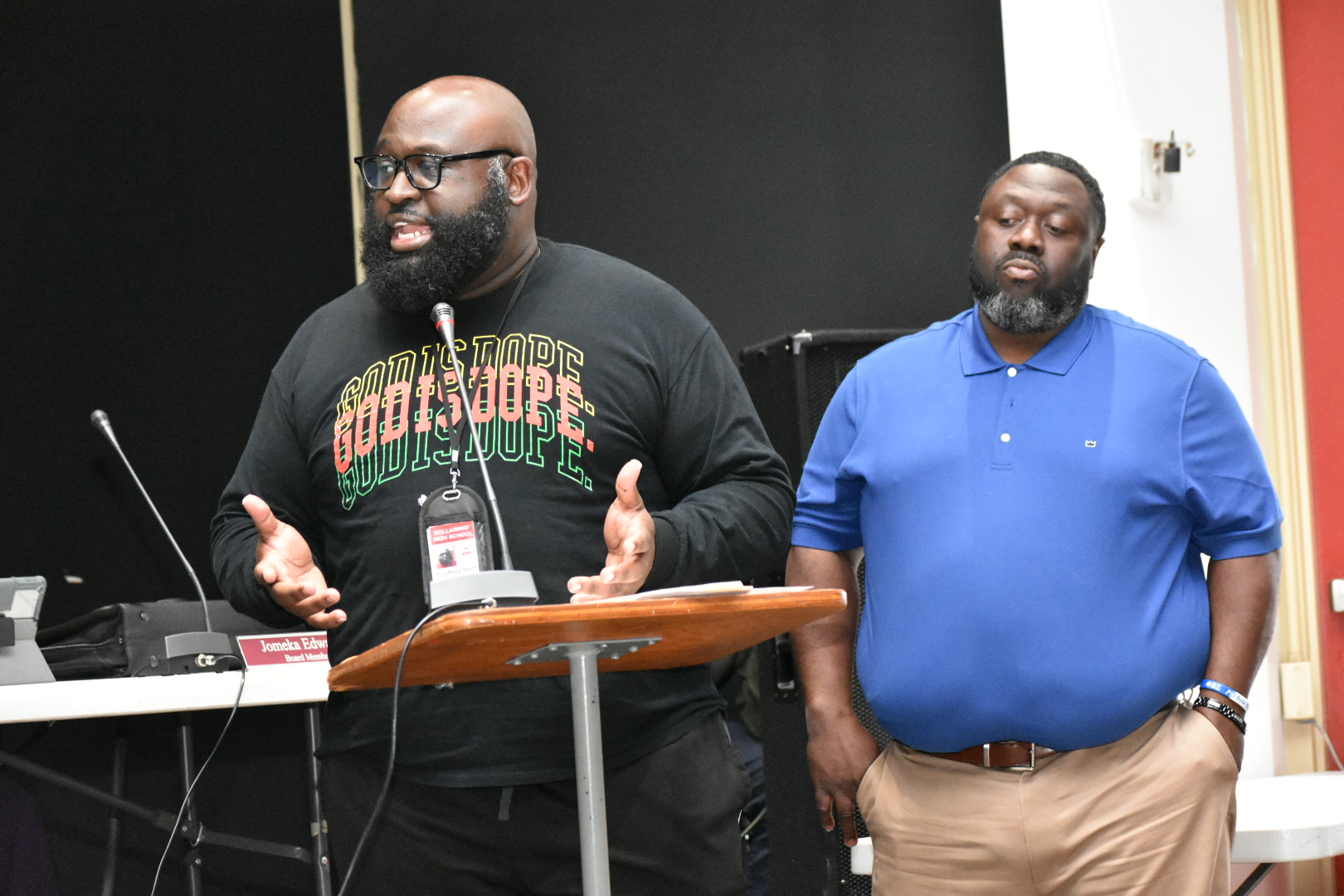When Arkansas Gov. Sarah Huckabee Sanders signed her education overhaul package known as the LEARNS Act, formerly Senate Bill 294, on March 8, superintendents and teachers seemed to have more questions than answers about the 145-page legislation.
Among the major talking points of LEARNS -- the acronym referring to literacy, empowerment, accountability, readiness, networking and school safety -- are the increase in minimum teacher salaries from $36,000 to $50,000 starting in the 2023-24 school year and the establishment of an Arkansas Children's Education Freedom Account Program, a voucher program to be phased in over three years that allows students to receive funding toward schooling equal to 90% of the prior year's state funding per student. The number of School Choice transfers into or from a public school district is now unlimited, unless the state is required to set a maximum otherwise due to a desegregation court order or a district's court-approved desegregation plan.
"You are opening the door wide open to charter schools," said Kourtney Smith, a member of the Pine Bluff School District's personnel policy committee and president of the Pine Bluff Education Association. "You are allowing those tax dollars to go to charter schools or any other schools or whatever school Tom, Dick and Harry want to open, and they're not under the same rules as public schools.
"It's been my experience the reason we have not been able to educate efficiently has been due to a lack of funding. Now, you remove the amount of funding and you're still not helping the issue."
While the plan encourages more adults to enter the education field and gives students and their families more freedom in their academic choices, many educators have wondered about the long-term negative effects that would arise from the package.
SALARIES
The LEARNS Act scratches out the minimum salary schedule for teachers based on years of experience and education level. (For example, an Arkansas teacher with 15 years' experience and a bachelor's degree would make a minimum of $42,750, compared to $48,150 for someone with that much experience and a master's degree this school year.)
Starting next school year, not only will $50,000 be the starting pay for a teacher, but each teacher will be paid at least $2,000 more than the current salary as of Sept. 1, 2022, if that teacher made at least $48,001.
"Ideally, if districts had the tax base to sustain such a big increase, the districts would have done that by now," said Smith, a choral music teacher at Dollarway High School. "What happens to that once it runs out?"
In the PBSD, a teacher with a bachelor of science in education degree makes $50,650 at step 17 now and will see that figure increase to $52,650, according to Superintendent Jennifer Barbaree.
"The stakeholders should know that the district administration is working closely with the personnel policy committee to create an equitable salary schedule that the district can fund," Barbaree said. "Although there are many other components of the Act, salaries are of concern at this time due to the immediacy of issuing contracts for next school year prior to the May 1 deadline."
Smith said he is meeting with Barbaree to determine the "best steps forward" to address teacher contracts.
"Since [legislators have] given us a bad hand, we're figuring out the best way to play it," he said.
The Arkansas Department of Education, through a study, determined the LEARNS Act will cost the state $297.5 million, according to an April 2 article in the Arkansas Democrat-Gazette.
"We are learning more about the impact of LEARNS, but with such a massive piece of legislation, we're still trying to connect all the dots," White Hall School District Superintendent Gary Williams said. "There will be written rules that will determine how the bill is applied to the school systems. The actual funding is now known, and districts are working through the fiscal impact for them."
All districts will be impacted by the cost of extended contracted days or federally funded employees, which the LEARNS funding will not cover, Williams said.
"Districts will likely simplify their approach to determining teacher salaries that will closely align with the LEARNS requirement for the next school year to give them more time to understand what their capabilities are to increase teacher pay in the upcoming years," Williams said. "School districts will continue to receive the foundation funding, which is determined by student enrollment and was increased by $205 to $7,618 per student. This increase of just under 3% is much appreciated, but with current inflation, districts will still watch their budgets closely as the cost of goods and services is still high.
"Teacher equalization money, which helps school districts whose teacher pay was below the average salary in Arkansas, will remain and has been an important new source of revenue for districts."
Watson Chapel School District Superintendent Tom Wilson agrees with several superintendents who say teachers should receive at least $50,000 per year. But he, too, cautioned before state education officials offered more details on the new law that teaching personnel on extended contracts have to be taken under consideration.
CRITICISM
Wilson took issue with the Education Freedom Account, arguing the unlimited school choice will not help inner-city schools.
"Due to new charter schools being built in the Pine Bluff area, there will be some migration occurring from the public schools," he said.
Another point of controversy has been the elimination of the Teacher Fair Dismissal Act, which protected an educator's right to be heard by a school. But an amendment was made to the bill to require a public school to provide written notice to a teacher when a superintendent recommends termination or nonrenewal of a contract.
"The Teacher Fair Dismissal Act is multi-tiered," Smith said. "It pretty much guarantees you a job every year unless if the district says, 'We don't want you anymore.' Getting rid of that, it takes away a safety net. It talks about due process."
At Watson Chapel, Wilson said each employee will be afforded a hearing before the board, if requested, should one be recommended for termination.
BENEFITS
The LEARNS Act hasn't been all controversial, according to local superintendents.
"I was happy to see the literacy focus in LEARNS," Barbaree said. "It reiterates our state's RISE [Reading Initiative for Student Excellence] initiative for which PBSD has in place. We will continue to move forward training our teachers and teaching with the science of reading."
Williams appreciates the conversation about education thanks to the passage of LEARNS, adding education is a big part of Arkansas' responsibility.
"It's a big part of our state budget, and it's always going to warrant conversation every two years about educational policy," he said. "I'm always excited about what we're doing in our Arkansas educational and how we can support and improve it. What I hope we all can do is remember the work the teachers do and have been doing. It was just a short while ago our schools were required to close, and teachers were concerned about their kids all across their state, and all across the land. Teachers were doing car parades through the neighborhoods so they could see the kids' faces and let them know the teachers were still there, still concerned about them and trying to figure out what we needed to do to finish that school year out in the spring of 2020."
Still, the rollout of LEARNS led to reported confusion among education leaders across the state over Governor Sanders' intended overhaul from the outset.
"I suppose you could call it a working document," Wilson said. "I wish administrators could have been more involved in the development of it before it was made law."
Smith encourages citizens to become more involved in public schools and elections so they can better understand the impact of the new law.
"If people know what's going on, you can move accordingly," he said.
Print headline: Schools act stirs supers' reaction

